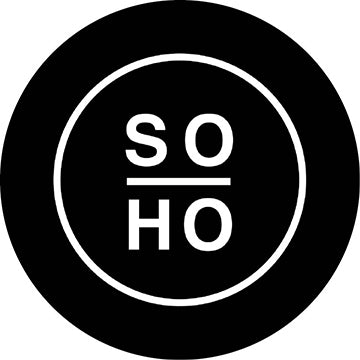Korongo
Fully Washed
"The flamingo, called Korongo in Swahili, stands out for its unique, bright pink coloring. It may not be pink, but like the flamingo, our Korongo blend immediately attracts attention with its pronounced sweetness, full body and prominent acidity. Vertical-integration and whole-harvest sourcing enable us to source Korongo’s 84+ SCA cup in significant volumes at an accessible price that supports roaster success and producer resilience." -Sucafina

Soho is proud to present Korongo, a Sucafina Original from Tanzania's Southern Highlands. You've seen it on the shelves for a while now, both on its own and as a part of our November 2022 Seasonal Blend. Crisp and clean, this washed coffee certainly doesn't lack flavour, boasting loads of rounded acidity. Our friends from Sucafina have given us a bit of insight into their production.

Brewing Tips
Korongo brews very similarly to other East African washed coffees, and benefits from being treated like a high acidity coffee. Though relatively easy to work with, the citrus notes can be sour if brewed too quickly. This coffee should have a citrus fruit start and a clean, tea-like finish.
Suggested brewing recipes:
For Espresso:
21g in, 45ml out at 29 seconds
(5 seconds until first drop, 9 bar pressure, no pre-infusion)
For Pour Over:
20g in, 300ml out at 2 minutes 45 seconds
(30 second bloom, 60ml intervals, some agitation)

From Sucafina Originals: About Korongo
Korongo is part of our Sucafina Originals range, our line of consistent and affordable blends directly sourced from our vertically-integrated supply chain.
Our Korongo blend (named for the Swahili word for flamingo) is sourced from a network of washing stations across Mbozi, Mbeya & Mbinga, in Tanzania’s Southern Highlands.
Selected by QC teams at our sister company in Tanzania, Korongo showcases Tanzania’s true potential, offering a consistent, fully traceable 84+ SCA cup available in large volumes. Vertical-integration and whole-harvest sourcing enable us to source Korongo at an accessible price that supports roaster success and producer resilience. Our Korongo displays the best of Tanzanian flavor profiles with a full body, pronounced sweetness and prominent acidity.

Coffee Details
- COFFEE GRADE: Korongo FW
- FARM/COOP/STATION: Various
- VARIETAL: Blue Mountain , Bourbon, SL28, Typica
- PROCESSING: Fully washed
- ALTITUDE: 1,600 to 1,900 meters above sea level
- OWNER: Farmers working with Sucafina Tanzania
- SUBREGION/TOWN: Various
- REGION: Mbozi, Mbeya & Mbinga
- FARM SIZE: 0.5 to 2 hectares on average
- HARVEST MONTHS: May - November

Cultivation, Harvest and Post-Harvest
In addition to growing coffee, farmers typically intercrop with corn, beans, groundnuts, sunflowers and ginger.
Cherry is hand-harvested. Farmer process cherry on their own farms, so individual processing methods vary from farm to farm. In general, cherry is pulped using either an eco-pulper or standard pulper and then fermented. Following fermentation, parchment is dried on raised beds for 14-20 days.
Once dry, the parchment sits for 2-3 months in cooperative warehouses before being transferred to mills in either Mbozi or Mbinga, districts in Southern Tanzania, to be prepared for export.

Coffee in Tanzania
Coffee’s roots in Tanzania can be traced via oral history back to the Haya tribe of Northwest Tanzania in the 16th century. Following German and then British colonial rule, the Tanzanian coffee industry has undergone many transformations and adjustments in an effort to create the most equal, profitable and high-quality coffee possible. Today, our in-country partner, Sucafina Tanzania, is invested in improving the coffee and the lives of smallholder farmers through a variety of initiatives.
Coffee in Tanzania was grown almost exclusively in the North for a long time. The Kilimanjaro, Arusha, Tarime, Kagera, Kigoma and Karatu/Ngorongoro regions were prized for their ideal Arabica growing conditions. At the time, coffee production was so concentrated in the north that Moshi, a northern municipality, was the only hub for all coffee milling and sales.

Operations in Moshi grew to truly massive proportions in the 1950s and early-1960s. Since both Tanzania, Kenya and Burundi were under British rule in the post-war decades, Moshi was the second milling and sales hub (after Nairobi, Kenya) for British coffee production.
Coffee cultivation has extended southwards in recent years. In addition to the historical powerhouse regions in the north, coffee is now also grown in the southern regions of Ruvuma and Mbeya/Mbozi. Most Southern expansion of coffee growing occurred in the 1970s and 1980s and was encouraged by two projects supported by European backers. In an ironic twist, today 75 to 85% of total coffee production in Tanzania today comes from farms in the south.

Your roasting pal,
Maddie

